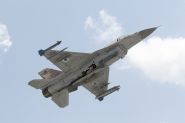Information Minister Paul Morcos announced Thursday that Lebanon’s Cabinet approved the removal of all armed groups from Lebanese territory, “including Hezbollah,” and the deployment of the Lebanese Army (LAF) to border areas.
“We will make the appropriate decisions based on the implementation plan to be submitted by the Army Command at the end of the month,” Morcos said in a press statement following the Cabinet meeting.
Reading from the official statement, Morcos said ministers attempted to persuade their Shiite colleagues to remain in the session through several proposals submitted by Prime Minister Nawaf Salam and other ministers.
“President Joseph Aoun was keen on ensuring their continued participation, but they chose to withdraw only to avoid being present for the decision, nothing more,” Morcos added. He emphasized that their withdrawal did not signal an exit from government and does not compromise the sectarian balance or “consensus” principle in governance.
Morcos also said the Cabinet approved the goals outlined in the introductory section of a U.S. proposal aimed at consolidating a cessation of hostilities, following amendments previously introduced by Lebanese officials.
In parallel, he noted that President Aoun had received international calls signaling the start of coordinated international and Arab efforts to rescue Lebanon’s struggling economy, adding that “preparations are underway to support these efforts.”
The Cabinet also approved engaging in indirect negotiations to demarcate Lebanon’s borders with both Israel and Syria.
Following the session, Prime Minister Nawaf Salam announced that the government had approved the “objectives” outlined in the introduction of the U.S. proposal presented by Ambassador Tom Barrack, which seeks to reinforce the ceasefire along Lebanon’s southern border.
In a statement shared on X, Salam emphasized that the objectives aim to ensure the full extension of Lebanese sovereignty and reaffirm that decisions regarding war and peace lie exclusively with the state.
أقرّت الحكومة اليوم "الأهداف" الواردة في مقدمة الورقة الأميركية لتثبيت وقف إطلاق النار التي استلمناها من السفير توم باراك، وهي:
— Nawaf Salam نواف سلام (@nawafsalam) August 7, 2025
1- تنفيذ لبنان لوثيقة الوفاق الوطني المعروفة بـ"اتفاق الطائف" والدستور اللبناني وقرارات مجلس الأمن وفي مقدمها القرار 1701 واتخاذ الخطوات الضرورية لبسط…
Reacting to the decision, U.S. envoy Tom Barrack hailed the move as a “historic and courageous” step, applauding the president, prime minister, and cabinet for taking decisive action.
Withdrawals During the Meeting
Shiite ministers Rakan Nassereddine, Tamara el-Zein, Mohammad Haydar, and then Fadi Makki withdrew from the meeting during its proceedings.
"I will return and attend, and I will not boycott the sessions, even if the Hezbollah-Amal ministers boycott them", said Minister of Labour Fadi Makki. "I will never be a means of boycotting and obstruction, but I left to give my colleagues a chance to reconsider", he added.
The ministers withdrew from the session to protest the government's refusal to postpone consideration of the document until after August 31, the date on which the army is supposed to submit its plan for disarming armed groups before the end of the year. The meeting was to continue without them.
Prior to the session, the president held a half-hour one-on-one meeting with Prime Minister Nawaf Salam. The meeting was entirely dedicated to discussing the roadmap proposed by Washington to consolidate the ceasefire between Lebanon and Israel and help the country recover, both in terms of security and the economy.
The session is being held in the presence of the Shiite ministers (with the exception of Finance Minister Yassine Jaber, who is currently abroad), who have voiced strong reservations about the authorities’ decision to disarm all armed groups in Lebanon by the end of the year. Two of them, Rakan Nassereddine and Tamara Elzein, had walked out of Tuesday’s Cabinet meeting in protest against the decision.
Before Thursday’s session began, Administrative Development Minister Fadi Makki, who had refrained from joining his two colleagues in their walkout on Tuesday, stated that he planned to “voice his position independently during the session.”
On Tuesday, Makki had tried to persuade both the president and the government not to set a deadline for Hezbollah’s disarmament, suggesting instead that a thorough assessment of the situation on the ground be conducted first.
While he ruled out boycotting Thursday’s session, he remained vague about what stance he would take should the government approve the US proposals.
Asked whether he would leave the session if the four Shiite ministers walked out, he replied, “We’ll cross that bridge when we come to it.”
He added, “A session without political consensus does not serve the public interest.”
Hezbollah Hits Back
As the Cabinet convened in Baabda, Hezbollah’s parliamentary bloc released a strongly worded statement condemning what he called “the government's apparent alignment with U.S. demands, demands the group says serve Israeli interests and threaten to place Lebanon under American tutelage”.
The statement accused “certain officials of blindly following foreign diktats and caving to American pressure, with no regard for Lebanon’s higher national interest or the need to preserve internal unity.”
In its familiar rhetoric, Hezbollah lashed out at Prime Minister Nawaf Salam, accusing him of backtracking on the commitments outlined in his ministerial policy statement. The group also took aim at President Joseph Aoun, claiming that the government's consideration of the U.S.-proposed roadmap is fundamentally at odds with the president’s inaugural address.
The bloc slammed what it described as the government’s “suspicious and irrational rush” to adopt Washington’s proposals, calling it a “clear violation of the spirit of the National Pact and a threat to the foundational principles of the Taif Agreement” which Hezbollah says enshrines Lebanon’s right to self-defense.
“The desperate push to target the Resistance’s weapons offers Israel a free service,” the statement read, “stripping Lebanon of one of its key sources of strength at a time of relentless Israeli aggression, daily violations of sovereignty, and ongoing assassinations of civilians and resistance fighters alike.”
Doubling down on its narrative, Hezbollah urged the government to “reassert the primacy of the national interest” and activate all available tools, especially what it described as a “long-dormant Lebanese diplomacy”, to pressure Israel into implementing the terms of the ceasefire agreement. Lebanon, it noted, has fully complied with its obligations, unlike Israel.
According to the bloc, “the real priority for the government should be developing a comprehensive national defense strategy, one that ensures Lebanon can protect its land, sovereignty, and people without compromise”.



Comments